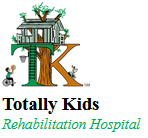Did you know that medicines are the leading cause of child poisoning? In fact, in 2017, almost 52,000 children below the age of 6 were taken to the emergency room after ingesting medicines that were not meant for them. That is the equivalent to 1 child every 10 minutes.
Kids are curious explorers by nature and their curiosity can lead them to discover areas in the home where medicines are stored. It isn’t unusual for children to find a way to open those little containers that store pills, tablets, other medicines, and vitamins.
That is why Safe Kids Worldwide, an organization dedicated to fostering the safety of children, urges parents to include medicine safety when childproofing their homes.
To help parents maintain medicine safety at home, Safe Kids created the following tips about medication safety:
- Keep medicine up and away, out of reach and sight of children, even medicine you take every day. Kids are naturally curious and can easily get into things, like medicine, if they are kept in places within their reach. Put all medicines and vitamins at or above counter height where kids can’t reach or see them.
- Consider places where kids get into medicine. Children often find medicine kept in purses or on counters and nightstands. Place bags and briefcases on high shelves or hang them on hooks, out of children’s reach and sight.
- Remember products you might not think about as medicine. Health products such as vitamins, diaper rash creams and even eye drops can be harmful if kids get into them. Store these items out of reach and sight of children, just as you would over-the-counter and prescription medicines.
- Give medicine safely to children. Use only the dosing device that comes with liquid medicine, not a kitchen spoon. When other caregivers are giving your child medicine, write clear instructions about what medicine to give, how much to give and when to give it. Using a medicine schedule can help with communication between caregivers.
- Save the Poison Help number in your phone and post it visibly at home: 1-800-222-1222. Specialists at poison control centers provide free, confidential, expert medical advice 24 hours a day. They can answer questions about how to give or take medicine and help with poison emergencies.
- Share medicine safety information with family and friends. Teach other caregivers such as family members, babysitters and friends about medicine safety and make sure they know the Poison Help number.
For a Medicine Safety Checklist from Safe Kids for children ages 0-5, 6-10, and 11 and older, and for other helpful resources for all parents, please go to:
